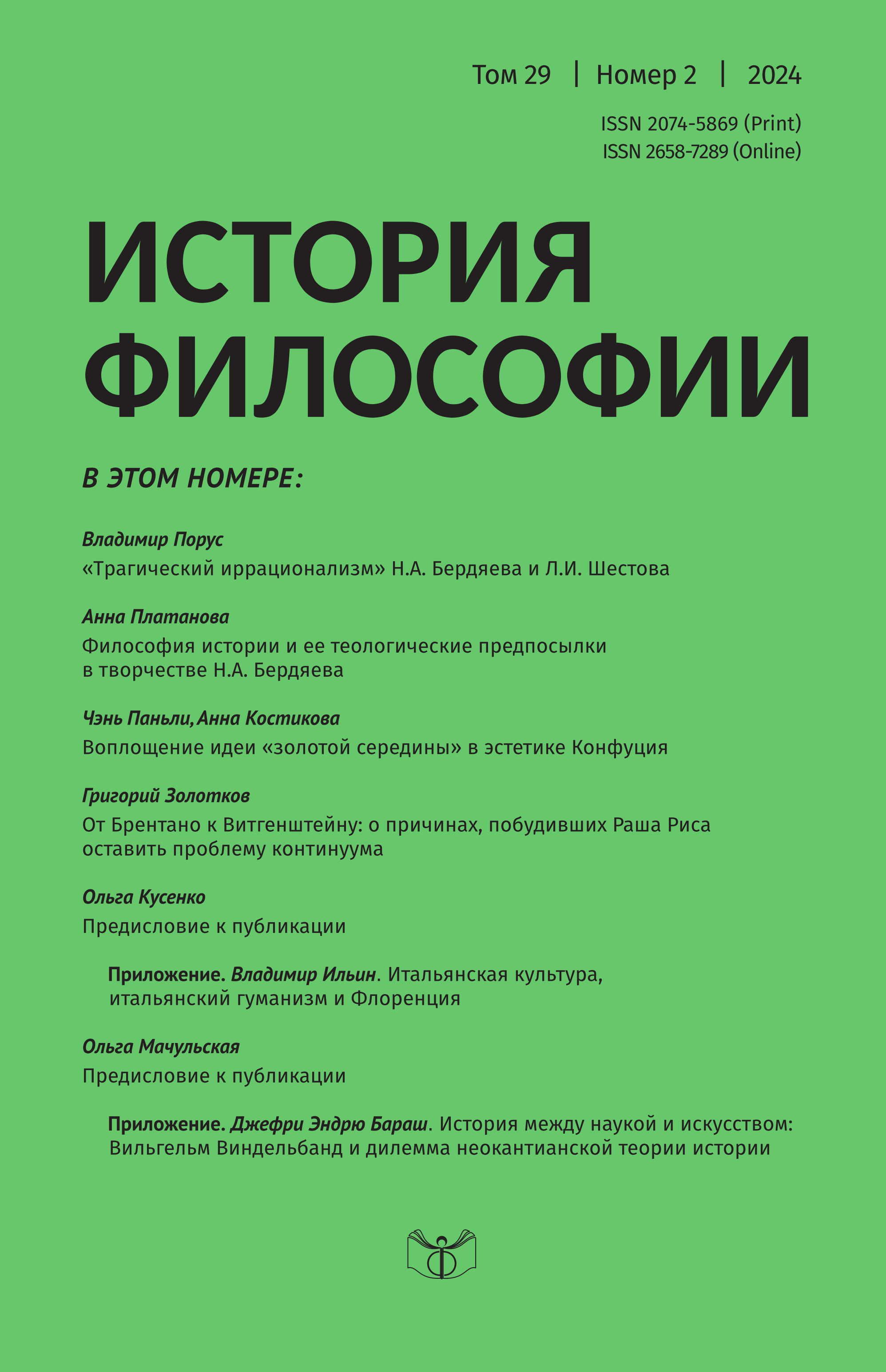The Concept of Religious Experience by F. Schleiermacher in the Works of “Secular” Religious Thinkers of the early 20th Century
DOI:
https://doi.org/10.21146/2074-5869-2024-29-2-64-75Keywords:
concept of religious feeling, reception of Schleiermacher’s ideas, philosophy of religion, F. Schleiermacher, S.N. Bulgakov, V.M. Zhirmunsky, V.V. Zenkovsky, V.S. Solovyov, P.A. Florensky, S.L. FrankAbstract
The article is devoted to the reception of the concept of religious feeling by F. Schleiermacher in the works of such Russian philosophers of the early 20th century as S.L. Frank, I.A. Ilyin, S.N. Bulgakov, F.A. Stepun, V.V. Zenkovsky, etc. The author of the article identifies the following ways of interpreting this concept: religious feeling can be understood as “psychologism” and “immanentism”, either detracting from the meaning of Revelation (reducing religion exclusively to personal experiences), or evaluated positively in terms of the existential significance for a person of these experiences (in this case, Schleiermacher is considered as a precursor of modern psychology); religious feeling can be interpreted closely to Dilthey’s ideas as the original unity of consciousness. In addition, religious feeling in the works of Schleiermacher (as well as other representatives of German Romanticism) becomes the subject of analysis of research on the psychology of religion. In general, the study of the interpretations by Russian philosophers of the concept of religious feeling in Schleiermacher’s teaching helps, rather, to approach the understanding of religious experience by the considered thinkers themselves, in whose works this concept is of great importance, but is often not explicated.

